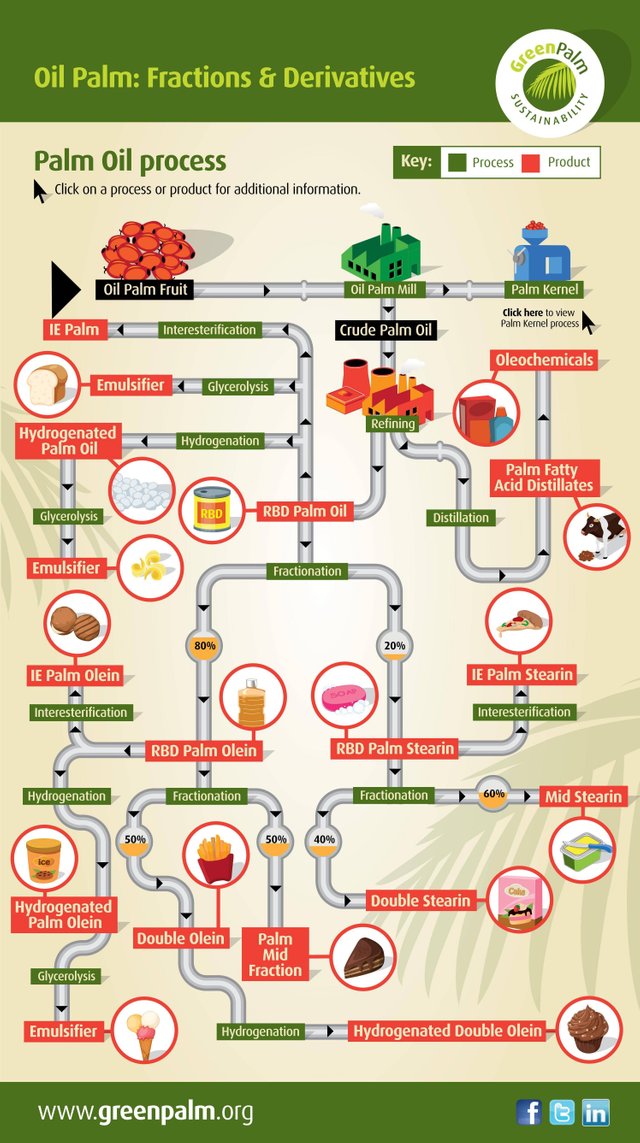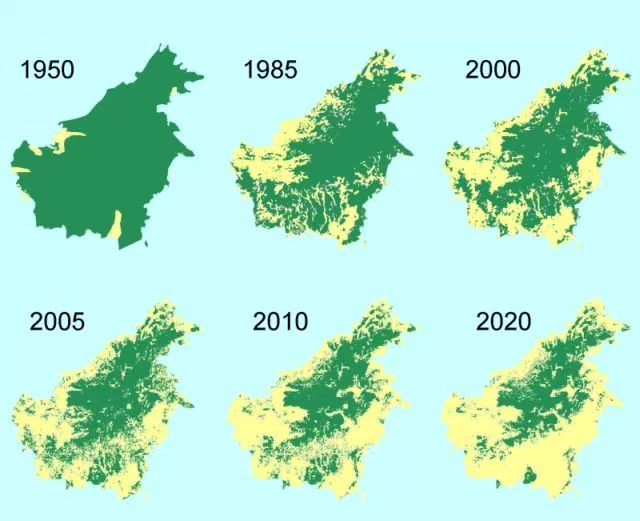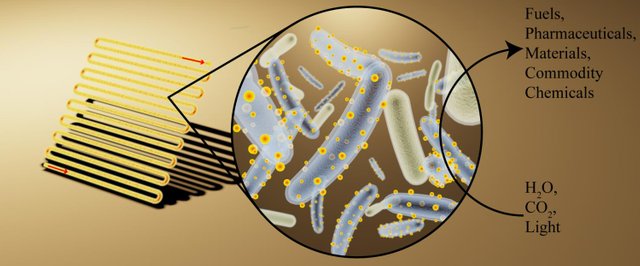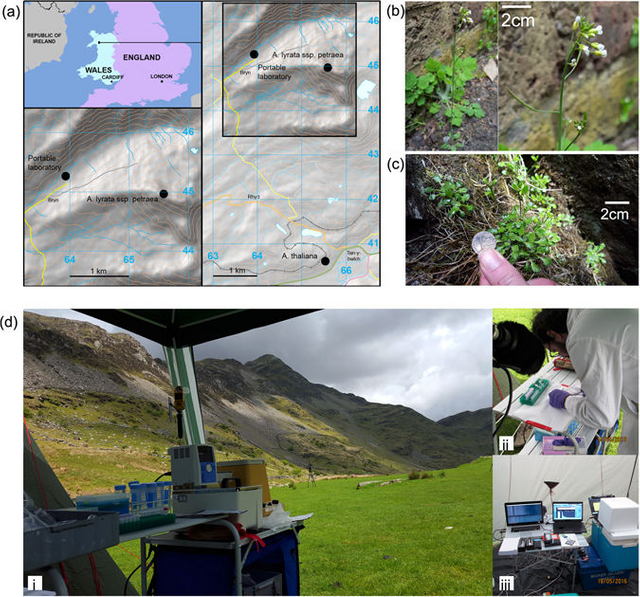What I learnt this week #9 - Cyborg bacteria, Palm oil genocide, Good mosquitoes, superconductivity and super-fast genome sequencing

Monday - Conservation Failure
Orangutans are in a lot more danger than imagined, and we're essentially seeing yet another extinction event.
Indonesia is known as the 'Orangutan capital of the world', and for good reason, but apparently palm oil is more important.
For those who don't know, palm oil is a plague on the natural world, because we humans tend to use it in everything, from soap, shampoo, paint, cookies, cooking oil, bread, pizza and way more. Here is just part of an infographic to demonstrate:

Only 50 years ago, Borneo an isolated tropical jungle with humans tribes who had never seen an outsider's face. Here is how things have changed:

This has been devastating for Orangutans who end up isolated themselves, cornered off on all sides by plantations. Inevitably, they either slowly starve to death, or are killed by the workers when they emerge from the remaining jungle, or just killed so they can kidnap the baby orangutan and sell it as an illegal pet.

There are now only about 6,600 left, living on only two islands, Sumatra and Borneo, and they're considered critically endangered, with the last resprt location, The Tripa peat swamp, also directly under threat by palm oil logging and blanket fires.
Sad, that we no longer need to say 'gone the way of the dinosaurs', when just as majestic, huge, iconic creatures are meeting the same fate right now.
On a lighter note, The 'last frontier' of discovery on earth, the sea floor, is being destroyed by humans faster than we can even get chance to figure out what's going on down there.
There have been only a couple of hundred research papers on genetic studes in the depths of the ocean, and how life is interconnected there. One thing that is vastly interesting to me is that deep sea creatures have been stable for much longer than surface life, having been largely immune to extinction events and climate change etc.
But deep sea fishing, for example is getting increasinly intense and arbitrarily annihilating anything down there that we have yet to even consider exploring.
It's very difficult to get genetic studies and so on for things so far down, so it's nearly impossible to put locations under protected status.
All in all, a good start to the week!
Tuesday - New wave of Physics
Last year, the physica of conductive materials had a hole blown into it, unleashing a new wave of understanding in the flow of electrons through materials just recently.
Graphene is the special material that people talk about making space elevators with as well as using it the the super conductive properties it holds.
The 'Landauer-Buttiker formalism' is the idea that there is a limit to conductivity in metal, but this can be breached by graphene due to an interesting discovery that opened the new field of 'electron hydrodynamics'.
Basically, at a particular temperature, colliding electrons flow like honey, which was found recently to be even more conductive because the electrons start 'working together' to ease the flow of a current.
Some electrons stay at the edge of the fluid, moving slowly, which protects other electrons from colliding there, essentially guiding those electrons through, making them 'super ballistic'.
This understanding could further enhance superconductivity that will, of course, advance technology iexponentially.
Wednesday - Cyborg Bacteria

This one has a handy video:
The new technology has over 80% efficiency and with zero waste, as the bacteria is self-replicating and self-regenerating.
By teaching bacteria to cover their bodies in tiny semiconductor nanocrystals, Dr. Kelsey K. Sakimoto may have found a more efficient, less wasteful and substantnially cheaper form of solar panel.
Thursday - Superfast Genome Sequencing
Genome sequencing has been getting improvements at an alarming rate. At one point it took decades to sequence a genome - 15 years in the case of humans, ending in 2003
Now, in 2017, barely 20 years later, scientists can sequence the genome of plants within hours with portable technology.
This means that botanists and the like can essentially genetically identify an unknown species on a whim, something that was often impossible just by using our eyes over the last few hundred years.
But it's not just cool to substantially reduce the time it takes from months to hours, it's also important for conservation efforts, as the bureaucracy and legal methods can take years to officially determine a species as endangered or otherwise. This way, we can get the genome part out the way to identify separate species, and fast track a plant or animal into protection.
Paper can be read here in detail of its methodology

All the gear needed to sequence genomes
Friday - Good mosquitoes
Mosquitoes are typically the worst animals ever, serving no purpose in the ecosystem other than spreading disease and killing more humans than any other creature on earth - including humans themselves.
But that's not actually true. for a start, only female mosquitoes bite us, and only a few selected species of the 3,000 that are known do that.
This is because these miniature rats have been disturbed from their natural habitat and really it's our fault that they do this to us.
The number of species of disease spreaders is almost nonexistent in places that are considered undisturbed and mature forested areas compared to those disturbed ones.
This has some implications, because as mass deforestation and urbanisation occurs, we disturb their habitats and cause them to move around and migrate diseases around, causing yellow fever and more - something that actually prevented the construction of the Panama Canal until the US completed it later when they managed to understand mosquito diseases.
By reinvigorating forestry efforts, the disease-carrying species will be less conspicuous, allowing non-disease ridden mosquitoes to flourish in their place.
The study isn't actually clear on the details of 'why', I'm sure this will come at a later date.
Palm oil infographic
Borneo
Orangutan
Cyborg Bacteria
Genome equipment
I really enjoy seeing posts like these. It always helps to boost my spirits and keeps me focused on the things that matter. Great post!
I'm glad it helps in that way =D Incidentally the act of writing these posts keeps me focused on what matters ^__^
Do you think man should master nature without abusing it? Do you think that is even possible?
I think we definitely should if we could. The possibility? Harder to say. I've no doubt in time, but whether or not we ruin it all before that time comes is up for debate.
The fact is, humans are a terrible toll on earth's skin, and short of killing ourselves off, we're the only ones that can shape the landscape around us to sustain itself. Its our gift and our curse, I suppose
Great
Very good content! Whale done:)
That was one heck of a compilation. Really enjoyed reading it !
Pretty amazing what goes on in any given week, eh?